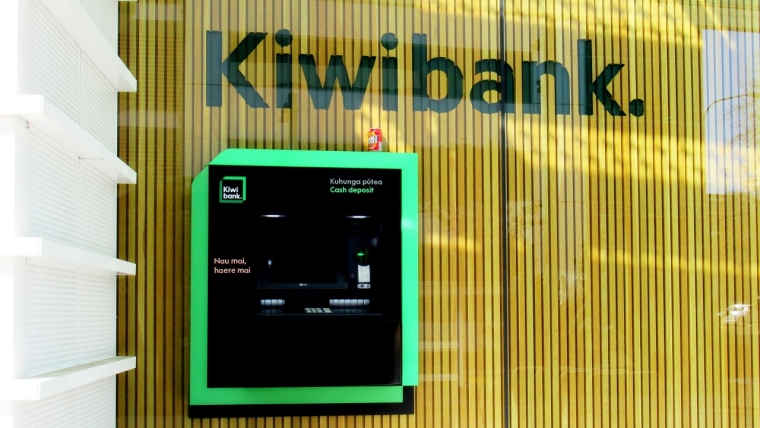
Kiwibank has been given final approval to raise up to $500 million from New Zealand investment firms after testing market demand.
Finance Minister Nicola Willis said letting the state-owned bank raise capital from private investors would help it to compete against the larger Australian-owned banks while still “retaining its intrinsic New Zealand identity”.
“The Commerce Commission reported last year that New Zealand’s four largest banks did not face strong competition when providing personal banking services. Advice to the Government is that an additional $500 million of capital could support up to $4 billion of business lending or $10 billion of home lending,” she said in a press release.
Kiwi Capital Group, the bank’s holding company, told the minister it believes there was sufficient interest from Kiwisaver funds, Maori investment institutions, and other professional investment firms to proceed with the rise. Treasury also helped test market demand.
Cabinet has given the bank until June next year to complete the raise and set some conditions on ownership. The Government will retain a minimum 51% share for the foreseeable future and limit any potential foreign investors to owning a maximum 20% of the company.
The $500 million capital raise will not be open to foreign investors. Only local New Zealand firms will be invited to buy shares. But Willis said the rules would protect the bank’s local identity in the future.
She said a future government may list Kiwibank on the stock market, which would give it easy access to capital as needed, but that wouldn’t occur without a mandate from voters.
In May, Kiwibank chief executive Steve Jurkovich told NZME foreign investors could bring technical capacity or international expertise and should be at least considered in the capital raise.
Kiwibank was launched in 2002 as a subsidiary of NZ Post. Jim Anderton, the bank's political father, wanted a New Zealand-owned bank providing services for low and middle-income earners. A "People's Bank," Kiwibank would keep profits onshore, end rising bank fees and return banking services to smaller towns after a drop in branch numbers from 1500 in 1993 to 900 in 1999.
In 2016 the NZ Super Fund and ACC bought into Kiwibank, which was by then the country's fifth biggest bank. In 2022, under the previous Labour government, the Crown bought out NZ Super, NZ Post and ACC in a transaction valuing Kiwibank's parent company at $2.1 billion after NZ Super had wanted the option of private sector investment being made in the bank.
A fact sheet from Willis’ office said the capital raise was not a “state asset sale” because all proceeds would remain with Kiwibank to support future growth.
“There is no return of capital to the Crown to deploy elsewhere and the Crown itself would not sell any shares,” it said.
Technically, an equity-based capital raise does involve issuing new shares that dilute the Crown’s ownership. The bank would sell these shares to investors, increasing its capital base, and leaving the Crown with a smaller stake in a larger business.
But it is different from previous asset sales where National governments used the proceeds to pay down core Crown debt, make infrastructure investments, and to cover regular spending.
The fact sheet said the final level of private ownership would depend on the valuation Kiwibank achieves in the capital raise. At its 2022 valuation of $2.1 billion, raising $500 million would involve selling a roughly 19% stake.
Prospects
Kiwibank made a net profit after tax of $92 million in the six months ended December 2024 and grew its lending book by 6% to $34.4 billion.
It said home lending grew 2.1 times faster than the market and business lending more than 6 times faster. Deposits also rose 6% to $30 billion, which was 1.6 times higher than the market.
Despite its growth, Kiwibank is still small relative to its competitors. It has just $3.4 billion in total capital, compared to ANZ with $18.7 billion, BNZ with $14.3 billion, and ASB and Westpac at about $11.5 billion each.
Chairman David McLean said the raise would help the bank continue its “above market growth and enhance its competitive position”.
“The Government has reaffirmed its commitment to supporting Kiwibank as a competitive, New Zealand-owned alternative to the larger banks, ensuring better outcomes for all New Zealanders,” he said in a statement.
Jurkovich said the capital raise would be structured to ensure Kiwibank’s continued role in improving services and pricing for consumers. The bank would remain 100% locally owned.
4 Comments
"Advice to the Government is that an additional $500 million of capital could support up to $4 billion of business lending or $10 billion of home lending”
So the equity can be leveraged 8x for productive purposes but 20x for the Ponzi. If this really were a 'people's bank', one would think that this is not just a continuation of what the whole problem is - unsustainable growth without inflation. Remember, if you're creating credit just for consumption and financial assets, this exacerbates inflation as you don't really get any increase the supply of goods and services.
Furthermore, if the lending were for productive purposes, you could have implicit understanding that RBNZ could be guaranteeing lending in some form. They have the ability to shoulder pvte business debt if necessary.
Gotta keep that unproductive allocation of capital going.
Just like that, in a single, succinct article on KB, the author explains the housing bubble.
Why not offer shares to Kiwibank customers first? Or do customers just exist to be sold to the highest bidder?

We welcome your comments below. If you are not already registered, please register to comment
Remember we welcome robust, respectful and insightful debate. We don't welcome abusive or defamatory comments and will de-register those repeatedly making such comments. Our current comment policy is here.